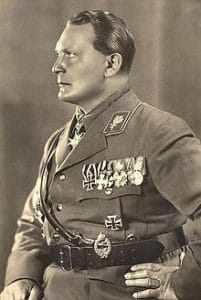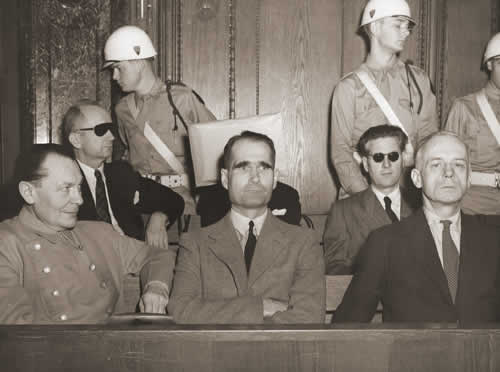Twenty-four high-ranking Nazis go on trial in Nuremberg, Germany, for atrocities committed during World War II.
The Nuremberg Trials were conducted by an international tribunal made up of representatives from the United States, the Soviet Union, France, and Great Britain. It was the first trial of its kind in history, and the defendants faced charges ranging from crimes against peace, to crimes of war, to crimes against humanity.
Lord Justice Geoffrey Lawrence, the British member, presided over the proceedings, which lasted 10 months and consisted of 216 court sessions.
On October 1, 1946, 12 architects of Nazi policy were sentenced to death. Seven others were sentenced to prison terms ranging from
Of the original 24 defendants, one, Robert Ley, committed suicide while in prison, and another, Gustav Krupp von Bohlen und Halbach, was deemed mentally and physically incompetent to stand trial. Among those condemned to death by hanging were Joachim von Ribbentrop…Nazi minister of foreign affairs, Hermann Goering, leader of the Gestapo and the Luftwaffe…Alfred Jodl, head of the German armed forces staff and Wilhelm Frick, minister of the interior.
On October 16, 10 of the architects of Nazi policy were hanged. Goering, who at sentencing was called the “leading war aggressor and creator of the oppressive program against the Jews,” committed suicide by poison on the eve of his scheduled execution.
Nazi Party leader Martin Bormann was condemned to death in absentia (but is now believed to have died in May 1945). Trials of lesser German and Axis war criminals continued in Germany into the 1950’s and resulted in the conviction of 5,025 other defendants and the execution of 806.


